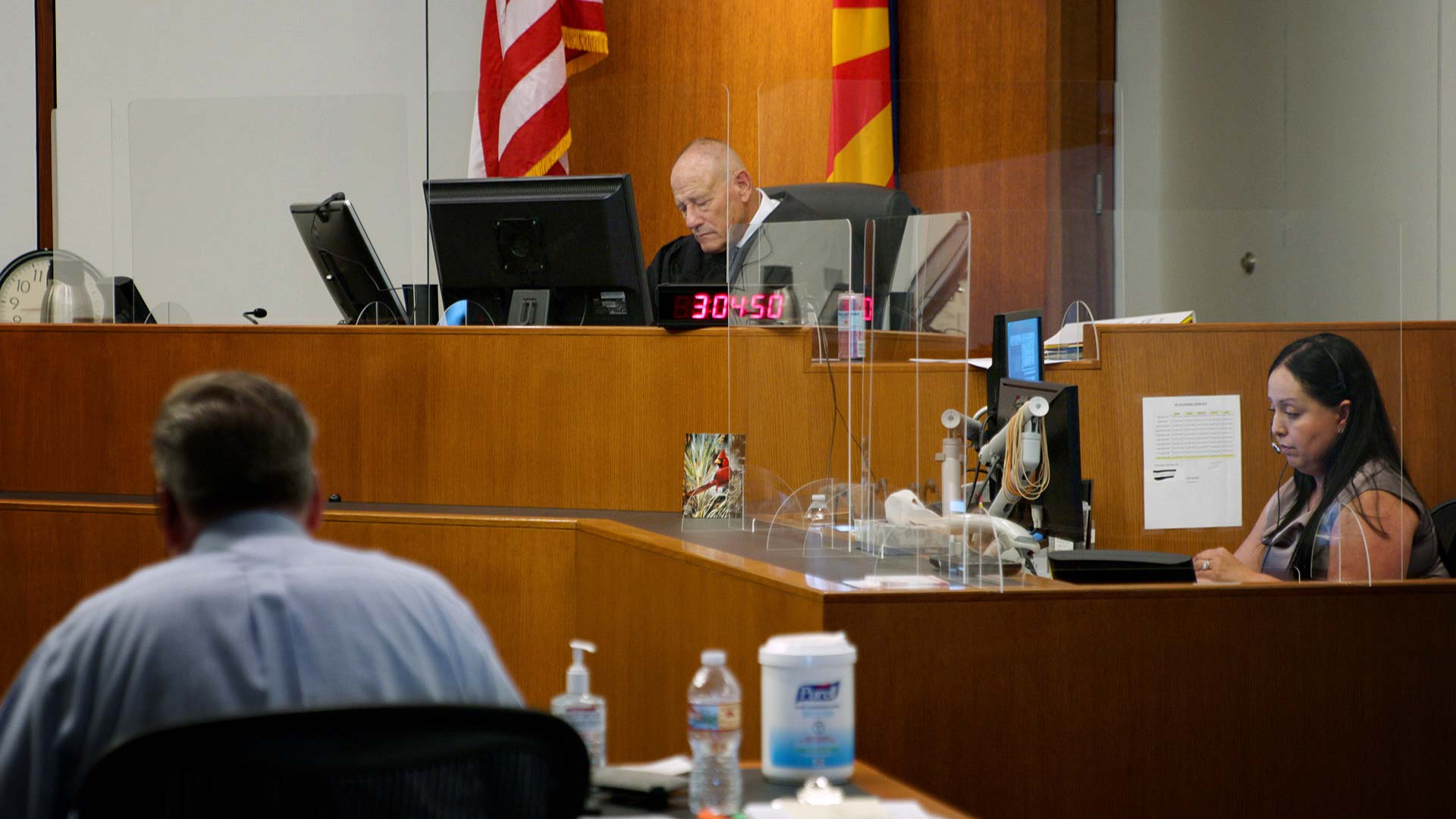 An eviction hearing takes place virtually in the courtroom of Judge Ronald Newman at the Pima County Consolidated Justice Court on Aug. 11, 2021.
An eviction hearing takes place virtually in the courtroom of Judge Ronald Newman at the Pima County Consolidated Justice Court on Aug. 11, 2021.
Pima County is scrambling to house families with children as evictions steadily increase. The county is also looking to the state for more relief dollars for rental assistance.
The CDC’s eviction moratorium ended in late August after the U.S. Supreme Court struck it down.
Pima County Community Workforce Development Department Deputy Director Andy Flagg said since the moratorium ended, the county’s eviction rate has grown to about 75% of where it was before the pandemic.
"But as landlords have come in to file both new cases and requests to restart cases that were delayed by the moratorium, we've seen a slow, steady uptick in those over the course of the last couple of months," Flagg said.
Kristen Randall is the constable and justice for precinct eight in Pima County. She said recent cases include more families than the county had seen before the pandemic, and the county is now issuing emergency hotel vouchers to them as it works on a long-term solution.
"These families are typically harder to house and shelter, because the shelter systems in our area tend to be more responsive to the needs of chronically homeless and maybe like single individuals," Randall said.
Pima County has an Emergency Eviction Law Services group that works with tenants and landlords to avoid evictions and often provide support through programs like emergency rental assistance. Randall said that while some landlords choose to go ahead with the eviction, many are responsive to their efforts.
"If they go ahead, and they evict a tenant who is, let's say, 12 months behind, there's no way for them to recoup that loss. Whereas, if they go through the process, and they get the rental assistance, they can get all that back rent and keep the family housed," Randall said.
Pima County has used 100% of its first round of federal emergency rental assistance funding, while the state has largely left its allocation of the federal funds untouched. The county is now applying to receive a share of the state’s allocation.
In August, Flagg and other local officials held a news conference highlighting the success of the program run jointly by the City of Tucson and Pima County. During that event, Tucson City Manager Mike Ortega asked the state to send the money to counties because they already had the programs in place.
"I would challenge the state to get us more dollars. I think that the model is something that should be mimicked by others across the nation," Ortega said.
U.S. Rep. Raul Grijalva was at the August event and joined in the call to get the state to send the money to the counties instead of trying to run its own program.
"We're not talking here about new money. We're not talking here about taxing somebody. We're talking about supporting people with the decisions that have already been made by Congress and President Biden," Grijava said.
The eviction problems facing Pima County are not unique. What makes Southern Arizona stand out is the rental assistance program run jointly by Pima County, nonprofits, and the city of Tucson combined with the work of local constables.

By submitting your comments, you hereby give AZPM the right to post your comments and potentially use them in any other form of media operated by this institution.